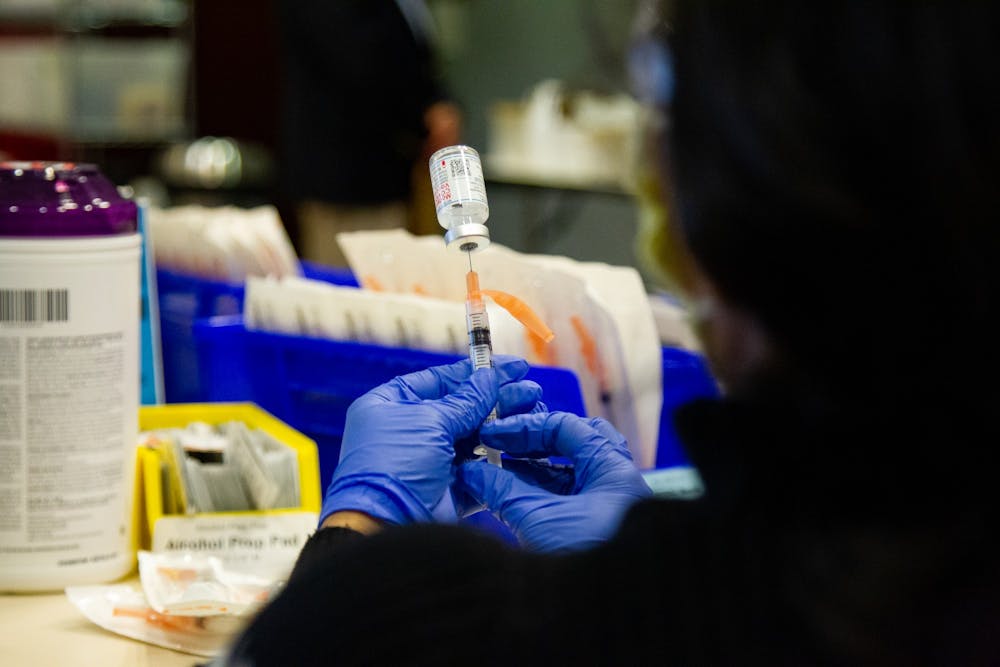Chapel Hill resident Betty Sonner, 96, received her first dose of the COVID-19 vaccine on Feb. 2. After months of self-isolation and fear, Sonner said she finally is beginning to see the light at the end of the tunnel.
The North Carolina vaccination process kicked off in December, allowing Orange County residents to begin receiving doses.
Though currently restricted to the top priority groups, which include health care workers, long-term care residents and people over the age of 65, the vaccine has already been administered to over a million state residents.
Despite the progress, the county is still many doses away from returning to life pre-COVID-19. As a result, those in Orange County who have been vaccinated are continuing to take the necessary precautions to avoid exposure. Sonner said she still plans to continue to abide by government COVID-19 regulations and avoid exposure.
“I think that because there’s so much going on right now, I don’t think we’re going to do any major changes in our lifestyle until things calm down and more shots are given out," Sonner said. "We’re gonna wear our mask all the time and just be very careful distancing.”
As a professor at Duke University over the age of 65, Gerry Cohen received his first dose of the vaccine on Jan. 25 through Duke Hospitals.
Though he has begun the vaccination process, Cohen plans to continue to listen to COVID-19 regulations until the pandemic is a thing of the past. He said he always wears his mask and follows the recommended guidelines to prevent the spread.
"I’m going to continue doing that certainly well into the fall," Cohen said. "(The vaccine) is 94 or 95 percent efficacy, which means there’s a 6 percent chance I’m not really protected.”
Cohen is correct: according to leading COVID-19 vaccination companies Pfizer and BioNTech, their vaccines have an efficacy rate of 95 percent. Russian producer Sputnik has also promoted its 90 percent efficacy.




